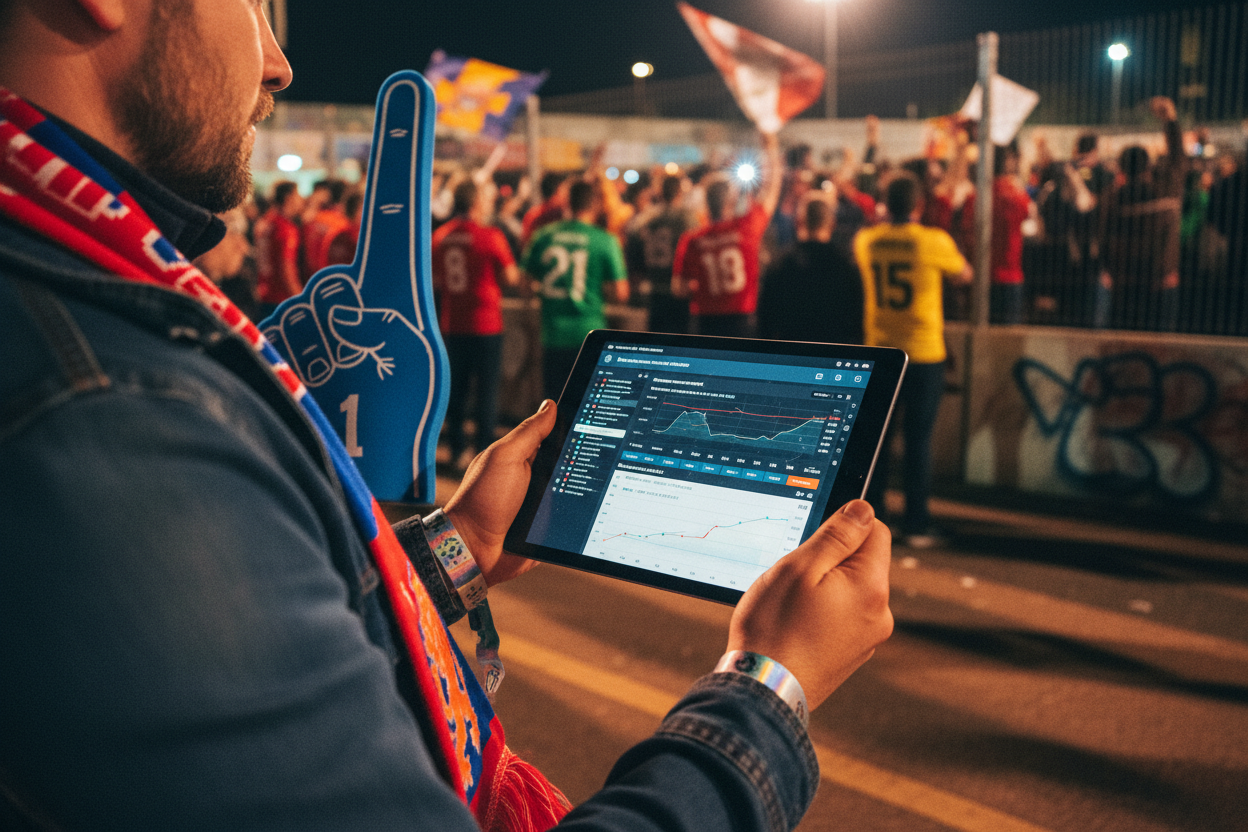
Web3 is rapidly reshaping the way sports fans interact with their favorite teams, athletes, and communities. By leveraging blockchain-based technologies, sports organizations are not just offering digital collectibles or tokens as novelties but are fundamentally reimagining the entire fan experience. This transformation is visible in everything from voting rights and immersive virtual worlds to secure ticketing systems and real-world rewards. As these innovations mature, they are moving fan engagement far beyond traditional social media or loyalty programs.
![]()
Fan Tokens: From Passive Spectators to Active Stakeholders
One of the most significant developments in Web3 fan engagement is the rise of fan tokens. These blockchain-based digital assets grant holders more than just bragging rights; they offer genuine influence within their favorite clubs. Platforms like Socios. com have led this movement by enabling global teams such as FC Barcelona and Juventus to issue official fan tokens. Holders can participate in club polls, vote on kit designs, select charity initiatives, or even help determine matchday experiences. This shift empowers fans to move from being mere spectators to becoming active stakeholders in their clubs’ futures.
The appeal for sports brands is clear: tokenization unlocks new revenue streams while deepening emotional ties with supporters. For a thorough look at how fan tokens are transforming sports fandom, see this detailed analysis.
NFT Sports Collectibles: Redefining Ownership and Memorabilia
Non-fungible tokens (NFTs) have created a new paradigm for owning sports moments and memorabilia. Unlike traditional trading cards or autographed merchandise, NFTs offer verifiable digital ownership secured by blockchain technology. The NBA Top Shot platform exemplifies this trend by allowing fans to buy, sell, and trade officially licensed highlight clips as NFTs, some of which have fetched six-figure sums at auction.
This new collectible economy appeals strongly to younger demographics who value both exclusivity and digital-first experiences. Beyond Top Shot, McLaren F1 has also embraced NFT innovation by releasing limited-edition digital car parts and race moments that function as both collectibles and interactive game assets.
Immersive Experiences in the Metaverse
The metaverse is fast becoming a central stage for next-gen fan engagement strategies. Virtual stadiums allow supporters worldwide to attend games together in real time, no matter where they live physically. Manchester City’s partnership with Sony has produced a digital twin of the Etihad Stadium where fans can meet avatars of players, participate in live Q and amp;A sessions, or explore behind-the-scenes content during matches.
This blend of physical and virtual presence not only removes geographical barriers but also creates entirely new formats for community interaction. As more teams experiment with metaverse activations, ranging from VR watch parties to interactive training simulations, the potential for personalized engagement grows exponentially.
In each of these areas, fan tokens, NFTs, metaverse experiences, Web3 is not simply adding another layer atop existing models but forging an entirely new path for how loyalty, participation, and value are defined within global sports communities.
Blockchain Ticketing and Loyalty: Trust, Security, and Real-World Utility
Another critical frontier for Web3 fan engagement is blockchain-powered ticketing and loyalty programs. By issuing tickets as digital assets on a blockchain, organizations can guarantee authenticity, eliminate scalping, and ensure seamless transferability. The New York Red Bulls’ recent partnership with Sports Illustrated to launch a blockchain-based ticketing system illustrates this shift. Fans benefit from secure entry, dynamic content tied to their tickets, and the opportunity to unlock personalized experiences as part of a broader loyalty ecosystem.
These systems also make it easier for clubs to reward attendance and engagement with on-chain perks, such as exclusive NFTs or early access to merchandise, formalizing loyalty in a transparent way. To dive deeper into how on-chain attendance tracking is transforming fan rewards, see this resource.
Case Studies: Web3 in Action Across Global Sports
The impact of decentralized sports engagement is best understood through real-world examples:
- ATP Tour’s Momentum: At the 2024 ATP Finals, fans claimed over 15 free match-specific collectibles that visualized player momentum. This initiative drew more than 75,000 participants who returned repeatedly during the event, a clear signal of heightened engagement via digital assets.
- Croatian Football Federation’s VATRENI Reward Pool: In partnership with Kadena, this program connects live match events to token rewards. Fans earn VATRENI tokens redeemable for VIP experiences or signed gear simply by participating in ecosystem activities.
- McLaren F1’s NFT Strategy: Since 2023, McLaren has blended digital car parts with real-world team experiences, allowing fans to collect and trade unique items that unlock both virtual and physical benefits.
Emerging Trends: The Future of Web3 Sports Communities
The trajectory for Web3 sports communities points toward even greater personalization and interactivity. As teams experiment with decentralized governance models, where fans can propose or vote on club initiatives, the line between supporter and stakeholder will continue to blur. Expect loyalty programs that span both digital and physical worlds; NFT drops tied directly to real-time game outcomes; and further integration of immersive metaverse environments where global supporters gather as one.
This evolution is also fostering new business models around fan participation. For instance, some clubs are exploring revenue-sharing mechanisms via tokenized memberships or DAO-like structures that give superfans genuine financial stakes in club success. For a closer look at how these trends are shaping the future of fandom, visit this exploration of sports team tokens.
What Matters Most: Transparency, Community Ownership and Security
The promise of Web3 lies not just in technological novelty but in its ability to foster transparency and shared ownership across vast communities of sports fans. Blockchain’s tamper-proof records underpin trust, whether for voting results or authenticating memorabilia, and open-source protocols allow developers worldwide to build new layers atop existing platforms.
Ultimately, the most successful clubs will be those that treat their supporters not simply as customers but as co-creators, inviting them into decision-making processes while rewarding their passion both digitally and physically. As these decentralized ecosystems mature, expect fan engagement to become more participatory, more rewarding, and fundamentally more human.










